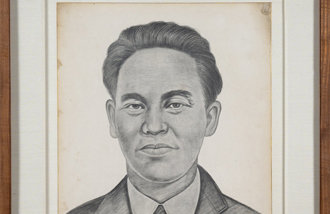Media-shy pres. candidates
Around 10 a.m. Friday, the camp of independent presidential candidate Ahn Cheol-soo notified correspondents of a hastily arranged news conference. Forty minutes later, Ahn entered the media room at his campaign office in Seoul and began a five-minute speech titled, The word unto presidential candidate Moon Jae-in and the people. Right after finishing speaking, Ahn walked out of the media room. On behalf of Ahn, Park Sun-sook, co-head of Ahns preparatory task force for the presidential election, answered questions from reporters. A presidential candidate is supposed to call an urgent news conference to make an important announcement. In the eyes of reporters, Ahns abrupt departure seemed to show his arrogance.
The independent, however, is hardly the only one unwilling to take sharp questions from reporters. Ruling Saenuri Party candidate Park Geun-hey also walked out of a media room after reading an announcement Nov. 6th on her plans for political reform, and did the same on Sunday after speaking on how to alleviate household debt. Reporters` questions were then fielded by her spokesmen. Compared to Ahn and Park, main opposition candidate Moon Jae-in seems more willing to speak to the media. He also lets others answer for him at times, but often takes questions himself. He did this Sunday after announcing his campaign promises. Nevertheless, Moon does not always provide satisfying answers to reporters.
News reporters ask questions to presidential candidates on behalf of the people. So the candidates must give clear answers no matter how uneasy certain questions seem. All three runners emphasize the importance of communication with the nation. So how can they stress that if they merely release messages and avoid taking questions? Candidates might be afraid of saying the wrong thing or being misquoted.
Another puzzling thing is the lack of a presidential debate among the candidates since late September, when the presidential campaign began. Presidential debates were introduced to Korea in 1997. Twenty-seven debates were held before the 2002 presidential race and 11 ahead of the 2007 election. This year, however, no matter how hard TV broadcasters or media tried to organize such debates, candidates have refused to participate using a variety of excuses. The Journalists` Association of Korea has organized a TV forum on Channel A in which Moon will appear Monday and Ahn Tuesday. The people will closely watch how each candidate answers questions. The ruling party`s Park said she will accept the program`s invitation after the opposition camp makes a final decision on a unified candidate.
In the U.S., presidential candidates this year actively communicated with the American people through news conferences and talk shows. Voters also got to hear the qualifications and visions of the runners on TV debates. Compared to the U.S. presidential campaign, Koreas seems too conservative. Korean voters will likely have to go to polling stations only after watching the three mandatory TV debates held by the National Election Commission.







